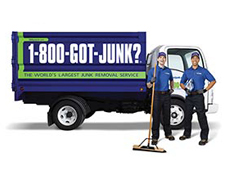The Ultimate Guide to Dirt Disposal: How to Responsibly Manage and Remove Dirt
 Are you in the midst of a landscaping project, garden renovation, or construction work and find yourself wondering how to dispose of dirt responsibly? Proper dirt disposal is essential for both the environment and the smooth progress of your project. This comprehensive guide will cover everything you need to know about dirt removal and disposal, including dirt removal services, soil recycling, and the role of dumpster rental in the process. Whether you're seeking a dirt removal service, looking for places to dump dirt, or wondering where to get rid of soil near you, this guide has you covered.
Finding the Right Dirt Removal Service When it comes to dirt removal, enlisting the help of a professional dirt removal service can save you time and effort. A reliable dirt removal service, such as 123 Dumpster Rental, can handle the process efficiently and ensure that the dirt is disposed of properly.
To start, search for "dirt removal services near me" to find local providers. Compare their services, customer reviews, and pricing to ensure you choose a reputable and cost-effective option. A trustworthy dirt removal service will have the necessary equipment and expertise to manage the removal and disposal of large quantities of dirt, making your project hassle-free.
Understanding Dirt and Soil Disposal Before you dive into dirt removal, it's crucial to understand the various aspects of dirt and soil disposal. Soil disposal near you can be managed through specific waste management facilities or designated areas, and it's important to follow local regulations to ensure compliance.
When considering where to dump dirt, seek out permitted sites such as waste disposal facilities, landfills, or soil recycling centers. These locations have the infrastructure to manage and process dirt and soil responsibly. Additionally, inquire about any applicable fees associated with dirt disposal to factor them into your project budget.
Responsible Dirt Disposal Practices Proper dirt disposal involves adhering to environmental guidelines and regulations. Responsible disposal practices aim to minimize the impact of waste on the environment and public health. Before initiating dirt disposal, consider the following steps to ensure responsible management:
Are you in the midst of a landscaping project, garden renovation, or construction work and find yourself wondering how to dispose of dirt responsibly? Proper dirt disposal is essential for both the environment and the smooth progress of your project. This comprehensive guide will cover everything you need to know about dirt removal and disposal, including dirt removal services, soil recycling, and the role of dumpster rental in the process. Whether you're seeking a dirt removal service, looking for places to dump dirt, or wondering where to get rid of soil near you, this guide has you covered.
Finding the Right Dirt Removal Service When it comes to dirt removal, enlisting the help of a professional dirt removal service can save you time and effort. A reliable dirt removal service, such as 123 Dumpster Rental, can handle the process efficiently and ensure that the dirt is disposed of properly.
To start, search for "dirt removal services near me" to find local providers. Compare their services, customer reviews, and pricing to ensure you choose a reputable and cost-effective option. A trustworthy dirt removal service will have the necessary equipment and expertise to manage the removal and disposal of large quantities of dirt, making your project hassle-free.
Understanding Dirt and Soil Disposal Before you dive into dirt removal, it's crucial to understand the various aspects of dirt and soil disposal. Soil disposal near you can be managed through specific waste management facilities or designated areas, and it's important to follow local regulations to ensure compliance.
When considering where to dump dirt, seek out permitted sites such as waste disposal facilities, landfills, or soil recycling centers. These locations have the infrastructure to manage and process dirt and soil responsibly. Additionally, inquire about any applicable fees associated with dirt disposal to factor them into your project budget.
Responsible Dirt Disposal Practices Proper dirt disposal involves adhering to environmental guidelines and regulations. Responsible disposal practices aim to minimize the impact of waste on the environment and public health. Before initiating dirt disposal, consider the following steps to ensure responsible management:
- Soil Testing: If your dirt contains contaminants, such as chemicals or pollutants, it's advisable to conduct soil testing. This information can help determine the appropriate disposal method and ensure compliance with environmental standards.
- Reuse and Recycling: Explore options for reusing or recycling dirt and soil. Some waste management facilities provide soil recycling services, turning dirt into reusable materials. By recycling soil, you contribute to sustainable resource management and environmental conservation.
- Composting: If the dirt is free from contaminants, consider composting it for future use in gardening or landscaping projects. Composting is an eco-friendly way to manage organic waste and enrich soil quality.







